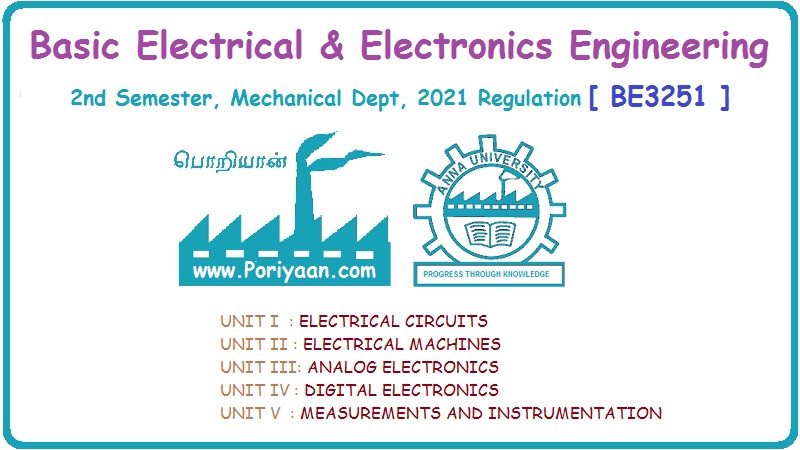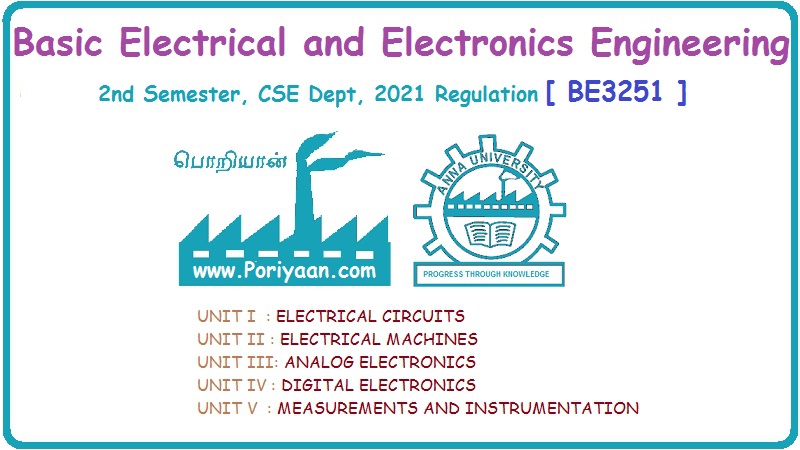Basic Electrical and Electronics Engineering: Unit II: Electrical Machines
Back emf of DC Motor
with Solved Example Problems
In a DC motor when the armature rotates, the conductors cut the lines of force of magnet field, so that an emf is induced in the armature.
BACK
EMF
In
a DC motor when the armature rotates, the conductors cut the lines of force of
magnet field, so that an emf is induced in the armature. This induced emf acts
in opposition to the current in the machine and the applied voltage so this emf
is called back emf or counter emf. According to lenz's law, the direction of
the back emf opposes the supply voltage the back emf is calculated from the
equation of induced emf in the generator.
Eb
= $ZNP / 60A
Where
ϕ
- flux/pole in wb
P
- Number of poles
Z
- Total number of conductors in the armature
N
- Speed in rpm
A
- No of parallel paths
The
equivalent circuit of a motor is shown in fig 3.25. Here, the armature circuit
is equivalent to a source of emf Eb, in series with a resistance Ra
and a DC supply is applied across, series connection of Ra and Eb.
The voltage equation is
V
= Eb + IaRa
From
the above voltage equation
Armature
current Ia = V – Eb / Ra
Where
V
- Applied voltage
Eb
- Back emf
Ia
- Armature current
Ra
- Armature resistance
V
- Eb - Net voltage in the armature circuit
(i) If the motor speed is high, back emf Eb
is large and armature current is small.
(ii)
If the motor speed is low, back emf Eb will be less and armature
current is more.
Example: 7
A
4 pole DC motor takes an armature current of 150 A at 440 V. If its armature circuit
has a resistance of 0.15Ω. What will be the back emf at this load?
Voltage
equation of DC motor is
V
= Eb + IaRa
Eb
= V - IaRa = 440-(150 × 0.15)
=
440 - 22.5
E
= 417.5 V
Basic Electrical and Electronics Engineering: Unit II: Electrical Machines : Tag: : with Solved Example Problems - Back emf of DC Motor
Related Topics
Related Subjects
Basic Electrical and Electronics Engineering
BE3251 2nd semester Mechanical Dept | 2021 Regulation | 2nd Semester Mechanical Dept 2021 Regulation
Basic Electrical and Electronics Engineering
BE3251 2nd Semester CSE Dept 2021 | Regulation | 2nd Semester CSE Dept 2021 Regulation

